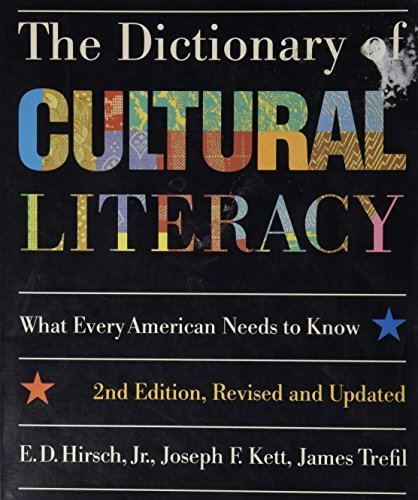What do you think?
Rate this book


619 pages, Paperback
First published September 26, 1988
1. This book, as well as the other two reviewed here, is very much U.S. oriented. However, it’s fair to add to that comment that Hirsch is not someone who believes that only information about the U.S. is needed by U.S. citizens. There is a large body of knowledge about other nations, other histories, people, art, literature from places other than the U.S. All these things Hirsch believes are needed for participation in American culture.Okay, that said, what’s in this book? It’s divided into 23 chapters, from The Bible to Technology, including such as: Proverbs; Literature in English; World Literature, Philosophy, and Religion; World History since 1550; and Physical Sciences and Mathematics. Each chapter, in turn, has a short introductory essay on why that area of human endeavor/knowledge is important. Then follow an alphabetical list of specific terms and names, each with a brief explanation and cross references. For example, in the chapter on American History to 1865, the entry Douglas, Stephen A. is
2. There is an unstated assumption, clearly indicated by this subtitle, that “every American” needs to participate in the “American culture”. This can certainly be argued about. Why can’t an American citizen opt out of American culture? Does someone doing work with the poor or the homeless in the inner city need to participate in American culture? How about a tribal elder on an Indian reservation? Or a musician fully participating in the African American sub-culture in America? Do all these people need to participate in the “American” culture, which one would suppose is predominantly defined by the groups holding power in America?
A political leader of the nineteenth century, known for twice running against Abraham LINCOLN – for a seat in the SENATE from ILLINOIS in 1858, which he won, and for the presidency in 1860, which he lost. The two engaged in the LINCOLN-DOUGLAS DEBATES over slavery and other issues in 1858.Note that this very brief explanation, while far less informative than the Wiki entry for Douglas, is enough for cultural literacy purposes, especially if the capitalized terms are already known, or looked up if not known.